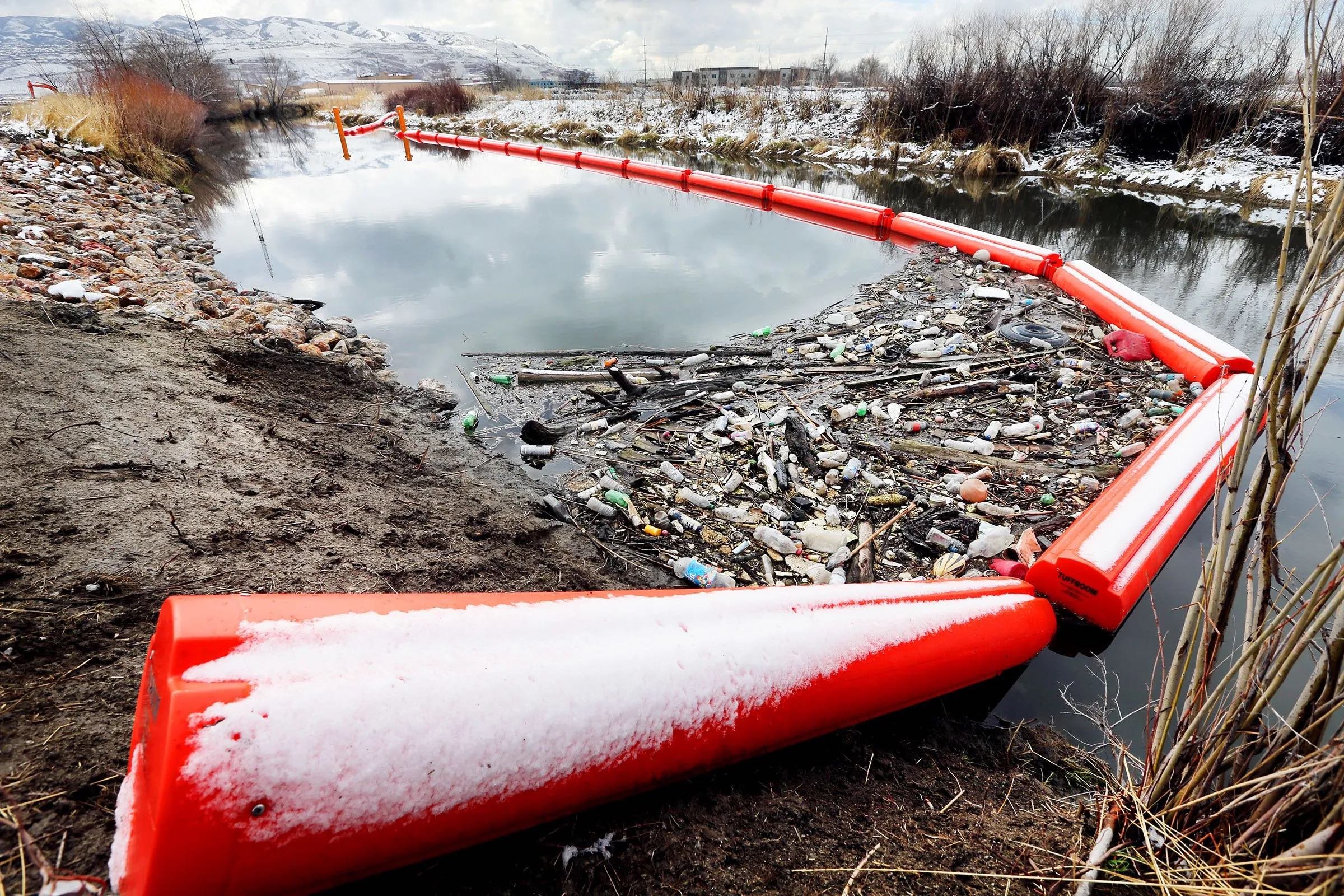
“Let's do what can we do to protect urban rivers and make them better...”
The new, bright orange trash boom had been floating on the Jordan River for just one week and by Monday it had captured a mass of junk.
Capture trash in your rivers and lakes
with these TuffBoom floating trash booms:
TUFFBOOM
The original floating trash boom for capturing trash in rivers and lakes.
Economical
Easy Installation
Configurable with debris skirts above and below.
ODINBoom
Durable HDPE floating trash booms for rough conditions and long term use. Lifetime pontoon warranty, highly visibility, multiple configurations.
BB20 - Debris Master
The ultimate debris control barrier for tough river and lake conditions. Deep screens stop floating plastic and trash and divert it to shoreline collection areas.
Most people know about plastic in the ocean, but what about landlocked states, like Utah? This video introduces local waste issues and describes a few ways to help make an impact! One of those ways featured by the video host is the Tuffboom floating trash boom barrier. This allows Salt Lake City to haul away 6-7 tons of trash per month rather than that trash making its way further downstream and eventually out to our oceans.
The floating trash boom that was installed on the Jordan River in March 2018 has prevented tons of garbage from flowing downstream. That was thanks to the collaboration of groups like SLCo Watershed, SLCo Flood Control Engineering, New State Duck Club, FRIENDS of the Great Salt Lake, and the Nature Conservancy of Utah. The Hogle Zoo is also working to hold trash cleanups and habitat restoration on the Jordan River as well as other tributaries.
All of this litter impacts wildlife that live or migrate through the Great Salt Lake and the surrounding wetlands. The Great Salt Lake supports millions of birds, including a population of bald eagles, and threatened or endangered species like the snowy plover and peregrine falcon. It’s a place where species of birds from all over the western hemisphere use as part of their migration pattern each year. Birds often mistake plastic as food, consume it and then starve. They may also become entangled in plastic bags or other soft plastics. This is devastating to bird populations, and that’s why REDO is working to draw attention to this important problem and help facilitate solutions.





